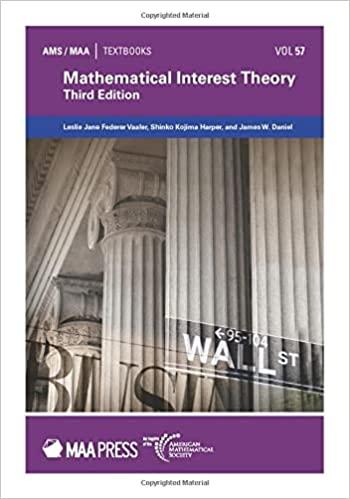Answered step by step
Verified Expert Solution
Question
1 Approved Answer
In what follows use any of the following tests: Regression, multiple regression, one-sided t-test, or two-sided t-test. All conclusions should be based on 5% P
In what follows use any of the following tests: Regression, multiple regression, one-sided t-test, or two-sided t-test. All conclusions should be based on 5%P-value threshold.
Choose the best fitting answer.
OpenBrainsdata.SETUP:Some people believe that first born subjects have different intelligent (different IQ test). Given the data, your job is to perform the appropriate statistical test or procedure and help them decide.
1. What test did you perform?
- a. Regression
- b. Multiple regression
- c. One-sided t-test
- d. Two-sided t-test
2. What is theP-value?
- a. 0.845379076
- b. 0.422689538
- c. 1.93055E-18
- d. 9.65275E-19
- e. None of these
3. What is the Statistical interpretation?
- a. SinceP-value is very small we can conclude that first born subjects have higher IQ.
- b. SinceP-value is too large we cannot conclude that first born subjects have different IQ than second born subjects.
- c. SinceP-value is too large we cannot conclude that first born subjects have higher IQ.
- d. None of these.
4. What is the conclusion?
- a. Test is inconclusive; thus nothing can be concluded.
- b. Test is inconclusive; thus we cannot claim that the IQ's are different.
- c. Test is inconclusive; thus we cannot claim that there is a correlation between IQ's and the order the subjects were born.
- d. None of these.
CCMIDSA: Corpus Collasum Surface Area (cm2) FIQ: Full-Scale IQ HC: Head Circumference (cm) ORDER: Birth Order PAIR: Pair ID (Genotype) SEX: Sex (1=Male 2=Female) TOTSA: Total Surface Area (cm2) TOTVOL: Total Brain Volume (cm3) WEIGHT: Body Weight (kg) 8.42 96 57.2 1 6 1 1806.31 1079 61.236 7.44 88 57.2 1 7 1 2018.92 1104 79.38 6.84 85 57.2 1 8 1 2154.67 1439 99.792 6.48 97 57.2 1 9 1 1767.56 1029 81.648 6.43 124 58.5 1 10 1 1971.63 1160 72.576 7.62 101 57.2 2 6 1 1689.6 1173 61.236 6.03 93 57.2 2 7 1 2136.37 1067 83.916 6.59 94 55.8 2 8 1 1966.81 1347 97.524 7.52 114 56.5 2 9 1 1827.92 1100 88.452 7.67 113 59.2 2 10 1 1773.83 1204 79.38 6.08 96 54.7 1 1 2 1913.88 1005 57.607 5.73 87 53 1 2 2 1902.36 1035 64.184 6.22 101 57.8 1 3 2 2264.25 1281 63.958 5.8 103 56.6 1 4 2 1866.99 1051 133.358 7.99 127 53.1 1 5 2 1743.04 1034 62.143 7.99 89 54.2 2 1 2 1684.89 963 58.968 8.76 87 52.9 2 2 2 1860.24 1027 58.514 6.32 103 56.9 2 3 2 2216.4 1272 61.69 6.32 96 55.3 2 4 2 1850.64 1079 107.503 7.6 126 54.8 2 5 2 1709.3 1070 83.009
Step by Step Solution
There are 3 Steps involved in it
Step: 1

Get Instant Access to Expert-Tailored Solutions
See step-by-step solutions with expert insights and AI powered tools for academic success
Step: 2

Step: 3

Ace Your Homework with AI
Get the answers you need in no time with our AI-driven, step-by-step assistance
Get Started


